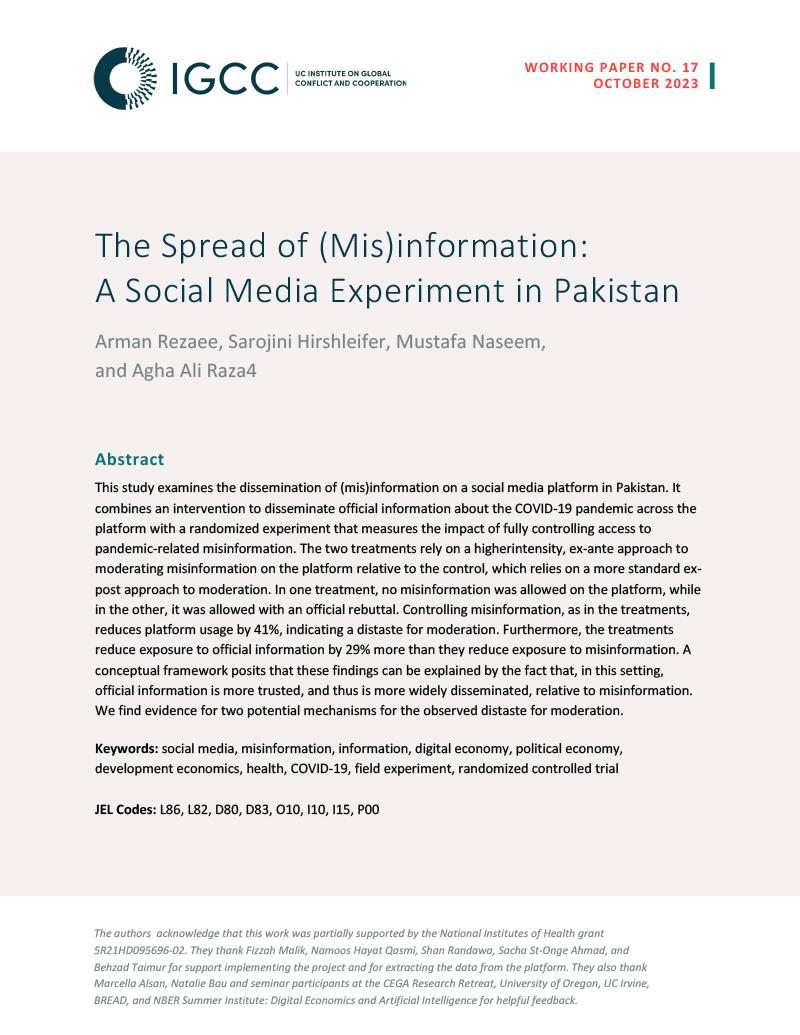The Spread of (Mis)information: A Social Media Experiment in Pakistan

In this working paper, IGCC affiliate Arman Rezaee and co-authors Sarojini Hirshleifer, Mustafa Naseem, and Agha Ali Raza find that attempts by social media platforms to limit the spread of COVID-19 misinformation may lead to less users utilizing the platform, which has the unintended effect of reducing user exposure to official COVID-19 information.
DownloadIn this study, IGCC affiliate Arman Rezaee, assistant professor of economics at UC Davis, alongside co-authors Sarojini Hirshleifer, Mustafa Naseem, and Agha Ali Raza, examines the dissemination of (mis)information on a social media platform in Pakistan. It combines an intervention to disseminate official information about the COVID-19 pandemic across the platform with a randomized experiment that measures the impact of fully controlling access to pandemic-related misinformation. The two treatments rely on a higher intensity, ex-ante approach to moderating misinformation on the platform relative to the control, which relies on a more standard ex-post approach to moderation. In one treatment, no misinformation was allowed on the platform, while in the other, it was allowed with an official rebuttal. Controlling misinformation, as in the treatments, reduces platform usage by 41 percent, indicating a distaste for moderation. Furthermore, the treatments reduce exposure to official information by 29 percent more than they reduce exposure to misinformation. A conceptual framework posits that these findings can be explained by the fact that, in this setting, official information is more trusted, and thus is more widely disseminated, relative to misinformation. The authors find evidence for two potential mechanisms for the observed distaste for moderation.